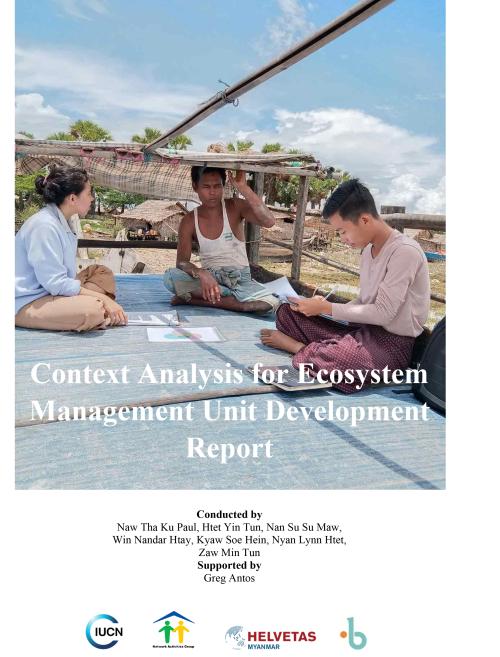This assessment was conducted with the support of the Gulf of Mottama Project and supported by both the IUCN and Helvetas Myanmar. The overall objective was to understand how the Ecosystem Management Unit (EMU) might be able to adopt an intersectional approach, paying equal attention to gender, ethnicity, and social class to support ecosystem conservation in a sustainable, participatory, and equitable way.
To gain understanding, the research tools included disaggregated Focus Group Discussions (FGD) with both the Village Development Committee (VDC) members and non-VDC members and in-depth interviews with VDC members and non-VDC members. The researchers sought to understand how the communities under study related to their surrounding ecosystem and an Ecosystem Approach to Fisheries Management (EAFM). It looked for indications of behavior change reflected throughout all levels of their local community. In addition, the assessment looked at the enablers and constraints of behavior change according to gender, ethnicity and socioeconomic level in relation to awareness and participation in the EAFM approach. This will all be useful for the design of key strategies, including community training programs, to address key challenges and constraints of an intersectional approach to EAFM.
Published By:
Published Date:
